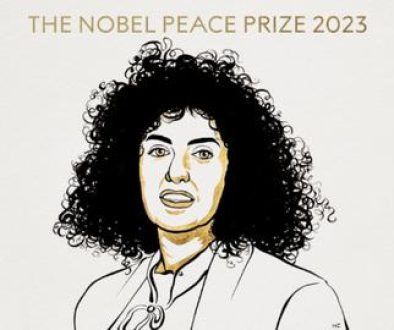Bridging the gap in menopause care for minority ethnic women

By Sabrina Keating and on behalf of the wider WEAVE team (Sultana Bi, Sharon Dixon, Jennifer MacLellan, Abigail McNiven, Francine Toye
In recent years, there has been increased recognition of the impact of menopause on women’s lives. This stage of life is typically accompanied by symptoms like irregular periods, hot flushes, and difficulties sleeping. These symptoms can differ from person-to person on their level of disruption to daily life, and may or may not require treatment.
Women’s health groups and activists have helped with pushing the symptoms of peri-menopause and menopause into public knowledge in recent years, with high-profile figures like Davina McCall calling for greater recognition and improved access to treatment. While this has resulted in an increase in public awareness, some primary care practitioners have highlighted the tendency of health messaging to veer into ‘GP-bashing’, wherein complicated issues are boiled down into a lack of competence or care amongst healthcare practitioners. The reasons for delayed or missed diagnosis and under-treatment of (peri)-menopause are multiple and complex. To better understand a sub-set of these concerns, our National Institute of Health and Care Research funded study looked into minority ethnic women’s experiences of help-seeking for (peri-)menopause.
While menopause’s overall visibility has greatly increased, this has not been evenly spread across the population. This is the case for minority ethnic women, who research increasingly suggests do not receive care at the same rate or quality of their white-British counterparts. Research suggests that the symptom presentation and severity of (peri)-menopause may differ across ethnic groups, however findings vary across studies and limited research has been done on the UK population. In addition to these limitations, it is difficult to isolate physical differences from related social and cultural factors, such as taboos around talking about periods.
The Fawcett Society’s 2022 report Menopause and the Workplace highlights differences in access to care and treatment amongst women in ethnic minorities. These differences include increased rates of reported delayed diagnosis amongst Black and minoritised women (45% compared to 31% in white women), as well as lower rates of HRT uptake (8% compared to 15% in white women). While it is important to account for the small population size (n=321) that can’t be fully generalised to the UK population, these findings do match with a growing body of evidence suggesting ethnic minority women receive insufficient menopause care and with growing concerns that ethnic minorities are being left out of conversations about menopause.
Arising out of a broader study on primary care practitioner experiences and perspectives of supporting women’s health, our recently published paper in the British Journal of General Practice focused on ethnic minority women’s experiences of help-seeking for (peri-)menopause within UK primary care. This paper blended the perspectives of primary care practitioners (including general practitioners, advanced nurse practitioners, practice nurses, paramedics, and pharmacists) with that of Black and South Asian women who were invited to reflect on the (peri-)menopause-related interview study findings.
After conducting and analysing interviews with 46 primary care practitioners located across England, we shared findings with three focus groups with 14 total women from ethnic minorities and invited exploration of how these sat with their lived experience of (peri)-menopause and health-seeking. Of the focus groups, one included Black African women and two included South Asian Women (split according to language, with one spoken in Bengali and the other in Urdu with the assistance of translators).
The interviews with primary care practitioners identified difficulties with identifying and communicating about the onset of menopause in minority ethnic women, as well as the struggle of providing holistic treatment for this group of women. While the practitioners had noticed a large increase in women seeking support for menopausal symptoms, this was primarily in white women rather than members of ethnic minorities.
Primary care practitioner interviewees suggested that this gap might be related to cultural sensitivities around menstruation and ageing. This was echoed by the focus groups of minority ethnic women, who reflected that talking about menopausal symptoms could be embarrassing, and that the expectation was to ‘just get on with it’ during this phase of life. Taboos around mental distress were also flagged as a barrier to seeking care, with this being deemed more stigmatised than talking about menstruation.
Our study also found that help-seeking was often complicated by differences in how ethnic minority women communicate the symptoms of menopause. While primary care practitioners may expect to hear about symptoms like ‘hot flushes’, it was reported that phrases like ‘aching all over’ and (vulval) ‘itching’ would sometimes be reported by minority ethnic women instead. This difference in communicating the issue could be confusing to primary care practitioners, particularly with language barriers and within the narrow window of a single consultation. As a result, diagnosis may be delayed and symptoms may be under-treated.
The need for more translated, visual, and culturally applicable health education materials was flagged in conversations with primary care practitioners and women with lived experience alike. As one participant described, the current framing of health messaging resulted in menopause seeming like a concern only for “white people”.
Additionally, the study flags the difficulty of ‘joining the dots’ of menopausal symptoms to provide holistic care. Primary care practitioner interviewees highlighted the inconsistent uptake of training on women’s health and the tendency of patients to favour female doctors for menopause-related concerns. Combined, these factors could result in male colleagues lacking the ‘vocabulary or confidence’ to address menopausal symptoms. The participants of the focus groups described experiences of not feeling listened to by male clinicians, as well as difficulties getting an appointment with a female primary care practitioner.
Our study points to the need for further steps in bridging the gap between minority ethnic patients and primary care practitioners. Further menopause-related training on the different symptom presentations that ethnic minority women may come forward with is needed to ensure that all primary care practitioners, regardless of gender, have the knowledge necessary to identify and communicate effectively about (peri-)menopause. In addition, health education materials must be broadened beyond the English language and targeted strategically at groups with less literacy about menopause.
Our study is limited by the small sample size of our focus groups, which are only a very small fraction of the perspectives of large and diverse communities. Additionally, the study is limited by its over-representation of female primary care practitioners in the interview sample (40 female participants, 5 male participants). Nonetheless, this study has provided a constructively two-sided view into some of the knowledge gaps, communication issues, and barriers to comprehensive menopause care for ethnic minority women in the UK. Future NIHR-funded research projects by teams at University of Oxford and University of Warwick will aim to explore these issues in greater depth and to further inform an evidence-based approach to menopause care for ethnic minority women.
Note: Gendered language has been used here as all participants identified as cis-gender women. Transgender and non-binary individuals will have overlapping and distinct care needs, which are of great importance but outside of the scope of this study.
This study/project is funded by the National Institute for Health and Care Research (NIHR) Policy Research Programme (NIHR202450). The views expressed are those of the author(s) and not necessarily those of the NIHR or the Department of Health and Social Care.
RELATED RESEARCH
In a linked study (WEAVE) we are exploring GP perspectives on supporting women with concerns about menstrual and gynaecological conditions such as polycystic ovary syndrome, menopause, and women’s cancers, whilst also providing scope for primary care practitioners to identify additional areas of important need.
We have done 46 interviews with primary care practitioners across England. One of our findings explores primary care practitioners experiences of help seeking among ethnic minority women for symptoms of peri/menopause. We reflected on these findings with 3 groups of ethnic minority women who illustrated the themes with their experiences.
Reference:
https://www.phc.ox.ac.uk/news/blog/bridging-the-gap-in-menopause-care-for-minority-ethnic-women





